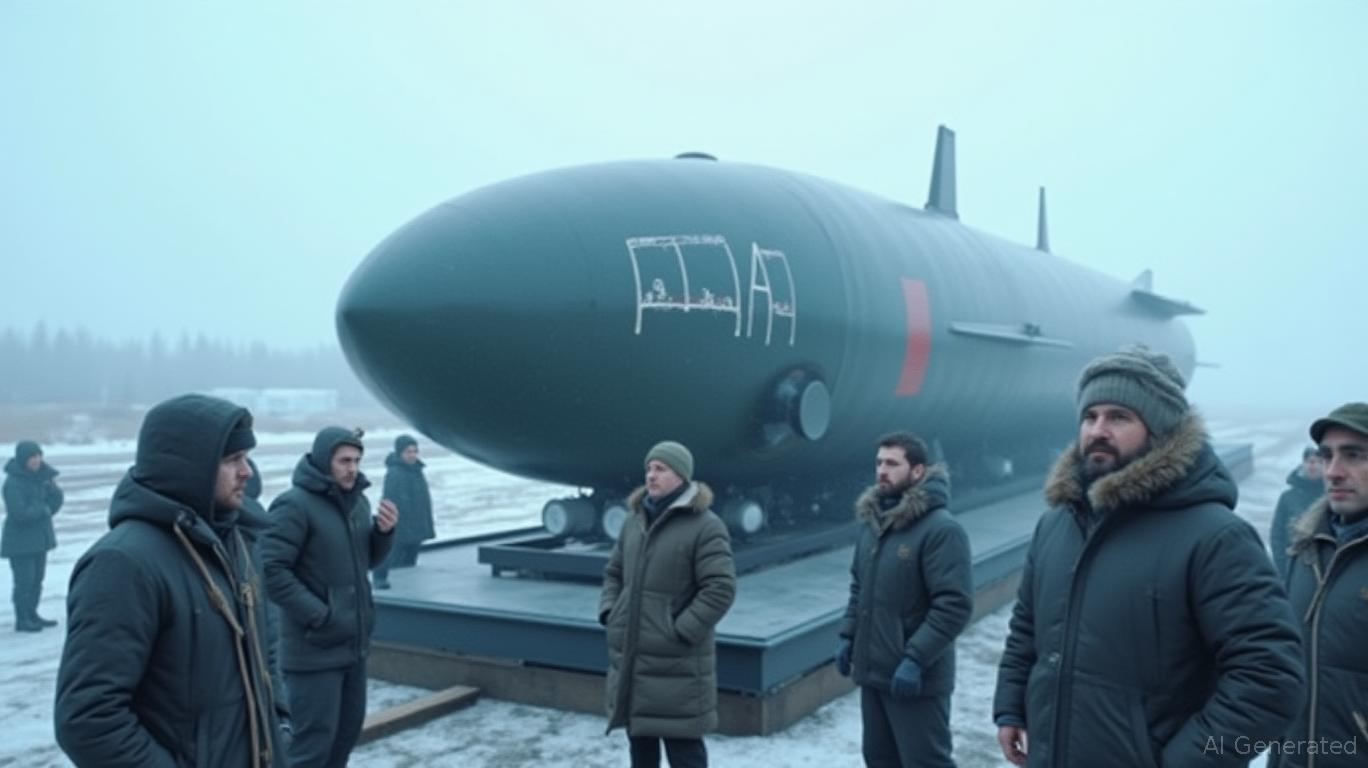Russia's Poseidon Torpedo: Intensifying Nuclear Strategy in Response to Western Advancements
Russian President Vladimir Putin has announced a significant leap in the country’s nuclear capabilities following the successful trial of the Poseidon 2M39—a nuclear-powered torpedo armed with a nuclear warhead and designed to create radioactive tsunamis. The October 29 announcement highlights Russia’s intensifying nuclear rhetoric as tensions with Western nations rise and the conflict in Ukraine continues, according to an
The Poseidon, officially known as the Status-6 Oceanic Multipurpose System, utilizes a small nuclear reactor for propulsion and is equipped with a warhead estimated to have a yield of up to 100 megatons—vastly more destructive than standard nuclear missiles,

This test comes shortly after Russia revealed successful trials of the Burevestnik, a nuclear-powered cruise missile said to have "unlimited range." Putin praised it as a "unique product" during a military update on October 22, as reported by
These demonstrations are taking place amid a renewed global arms race and stalled negotiations between the U.S. and Russia. U.S. President Donald Trump, who has dismissed Russia’s actions in Ukraine as a "paper tiger" effort, has called on Putin to halt the conflict rather than "squander resources" on new weaponry, according to Euromaidan Press. The Trump administration has also enacted sanctions against Russia, with further penalties ready if the war continues, as reported by Newsweek. In contrast, Putin’s government has justified the tests as a necessary response to Western military advances, emphasizing that the Poseidon and Burevestnik strengthen Russia’s second-strike capability, as another Newsweek article points out.
Military analysts warn that deploying the Poseidon could transform the concept of nuclear deterrence. Defense expert Ivan Stupak highlighted the psychological effect of the weapon, saying it is meant to intimidate "abstract Western powers" that depend on the world’s oceans. However, producing nuclear-powered torpedoes presents significant technical and resource challenges.
The recent tests have also reignited discussions about nuclear arms control. The Poseidon’s ability to circumvent missile defenses complicates current strategic doctrines and may force NATO to reconsider how it protects its coastlines and ports. With Russia preparing to station the Oreshnik hypersonic missile system in Belarus and continuing to test its Sarmat ICBM, the Kremlin’s nuclear ambitions seem set to alter the landscape of global security.